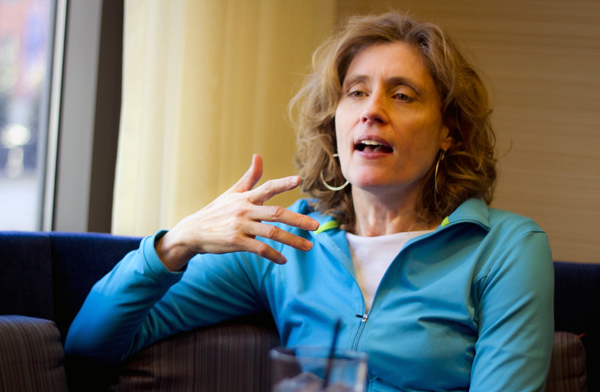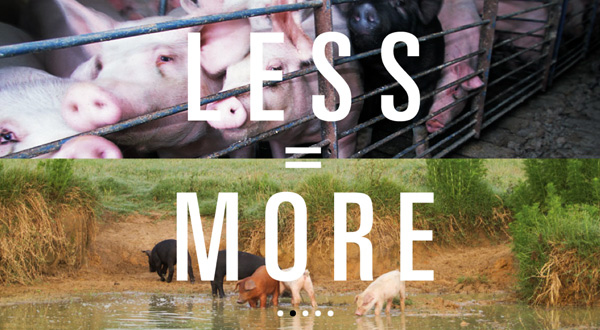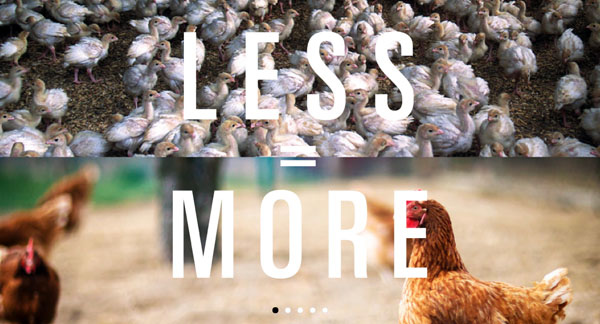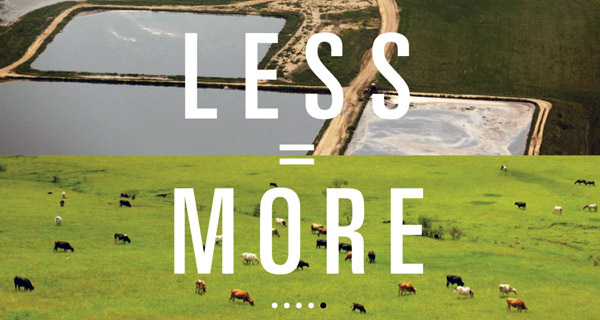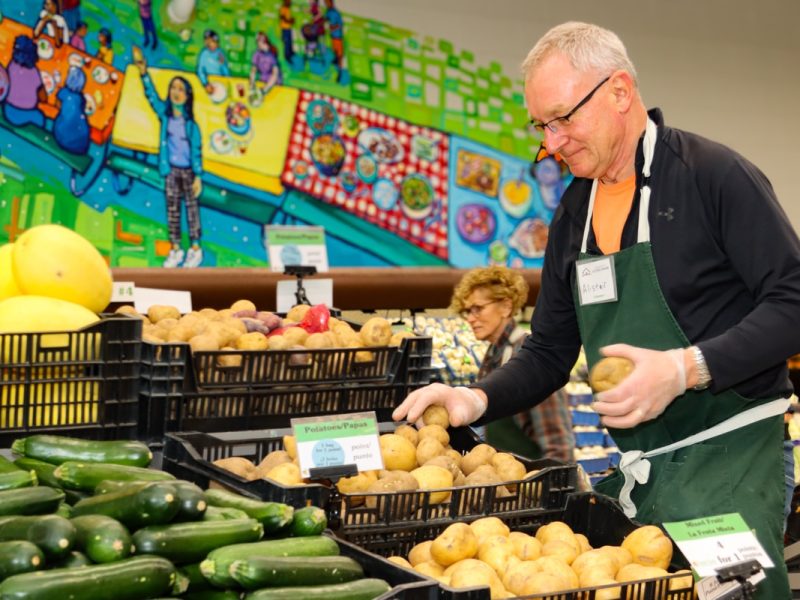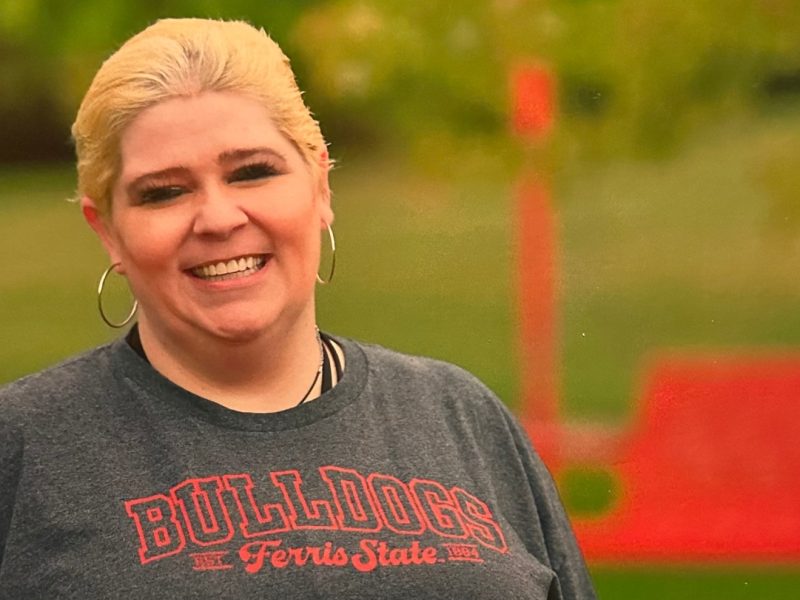G-Sync: Less = More for Michigan
A new food-focused project has launched in Michigan. If successful, Less = More could change the lives of our local farmers (and others') for the better. Lifestyle Editor Tommy Allen goes down on the farm.
Tommy Allen discovers a new way to level the field for Michigan’s farmers. It’s healthy, too.
A fact of life is that we, as humans, sometimes get it wrong. But on the rare occasion when clarity’s light dawns, we get a chance to set it right. It’s the space in between illumination and our resulting steps that define who we truly are.
Recently, Gail Philbin moved back to Grand Rapids after spending a few years in Chicago. There, she worked with a few nonprofit organizations and campaigns that sought to harness her passion for sustainable and just practices.
Prior to Philbin’s departure to Chicago, she served in a key leadership role with the West Michigan Gleaners (Feeding America) and most importantly, was a founding organizer of BALLE West Michigan (Business Alliance for Local Living Economies), now known as Local First.
When I sat down to discuss her latest project as the newly hired Assistant Director for the Sierra Club Michigan Chapter (SCMC), I was expecting the same exciting news I, as well as others, had come to expect from Philbin.
But I never anticipated this new project, Less = More, to pack such a wallop, while also presenting a rare grace in an era of “shout politics” around a typically volatile topic.
The last time Philbin and I sat down for a heartfelt talk, it was on occasion of her 2005 personal project, Farms Without Harm (FWH). This website that sought to harness a strength through collaboration, based on the belief that people want and desire to know what local farms are providing a quality experience for their livestock.
Philbin, a vegetarian, believed that farm animals deserve a level of compassion or quality of life while alive on our planet, a departure from the images of crowded cages or the videos released over the years of what really happens in the windowless barns that have become referred to as factory farms or, as the industry prefers, Concentrated Animal Feeding Operations (CAFO).
In the pursuit of more production, this has been the first step in a series of trade-offs the farmer makes in the pursuit of being an efficient member of the modern food system. But not all people see eye to eye on this matter.
And this is where the compelling new Sierra Club Michigan Chapter’s Less = More is turning heads and starting a movement in our state. The Less = More is a campaign seeking to carve out more for our Michigan farmer who wants to do the right thing.
“Right away what I found with my last project was, if this was to work, we had to create a coalition of organizations within our state, but also bring in national leaders to begin to ask how we as a group of concerned farmers, environmentalists and farming-focused agencies can begin to address the inequities in funding where people are violating pollution laws and community health standards and yet still receive federal farming subsidies,” says Philbin.
According to a Less = More white paper released last month released on the SCMC’s site, “Our mission is really very simple. We seek to level the playing field for the sustainable farmer of Michigan.”
Less = More encourages people who review the research on their site to write a message to the Federal Government’s conservation officer assigned to our state to oversee the distribution of these farm bill funds.
Less = More wants our tax dollars to begin to consider our local farms and their increasingly important role in stabilizing Michigan’s economy.
Philbin believes that the distribution of these funds, which awards CAFOs with enormous payouts, are woefully out of sync with the reality of the consumer, who studies show is becoming more concerned about their food’s source.
Presently, when people go to the farmers’ market, they are in a way saying, “We care about our local farmers’ well being.” Meeting the farmer also opens up dialogue.
But what the consumer also believes is that they are supporting the local farmer with their funds. Yet, so is the consumer who is buying inexpensive CAFO food as well, it’s just that the CAFO food is being subsidized by the consumer’s tax dollars.
“We acknowledge that factory farms are a big part of the current food system, but we also know that with them comes huge public health and environmental risks because of their inherent unsustainability and impact on our natural resources,” says Philbin. “What we are saying with our campaign is that CAFOs that receive taxpayer subsidies and are found to be in violation of federal or state environmental regulations should not receive public funds for their polluting practices.”
Often the biggest atrocities are evident via the impact these CAFOs have on our community’s water systems as run off finds its way into our rivers.
The trend of farm-to-table ultimately will succeed if we are able to supply the growing demand in a sustainable way. This project asks that the Federal government look at these bright spots on the agricultural landscape.
The SCMC has taken on projects like this in the past, and Philbin points to the success they have had in changing our state’s energy supply from coal-based to alternative forms of energy.
“This is a long-term project, but already we have a thrilling start. So far, 1370 emails have been sent to State Conservationist Garry Lee by folks asking him to support sustainable agriculture, not polluting factory farms,” says Philbin, who is really proud of these first few weeks’ results.
Should the Less = More program prove to be successful, it will go national as many organizations around the country are watching closely what is happening here in Michigan on this topic.
The Less = More campaign is about creating more goodness within our state and not continuing to reward violators as we presently do. Philbin is hopeful for a change, and so is former President George W. Bush speechwriter, Matthew Scully.
In Scully’s groundbreaking book, Dominion: The Power of Man, the Suffering of Animals, and the Call to Mercy, he writes, “Sometimes tradition and habit are just that, comfortable excuses to leave things be, even when they are unjust and unworthy. Sometimes — not often, but sometimes — the cranks and radicals turn out to be right. Sometimes, everyone is wrong.”
Let’s hope that through lending our voice with grace, we can make our state the place where our food is more than just better, but kinder, too, where more is goodness for all.
Awareness is the path to knowledge, and how we extend our hand now in this space is where the growth begins.
On Thursday, March 21 at 7 p.m. a panel discussion will be held at Michigan State University’s East Lansing campus as a part of Less = More’s mission to educate. Included on this panel will be Daniel Imhoff, Food Fight author/farmer; Gail Hansen, Pew Campaign on Human Health and Industrial Farming; Joe Maxwell, The Humane Society of the United States; Lynn Henning, 2010 Goldman Environmental Prize winner and Sierra Club activist, and Maynard Berry, Michigan sustainable livestock farmer. See the Less = More website for all the details and directions.
The Future Needs All of Us.
Tommy Allen
Lifestyle Editor
Stop saying there is nothing to do, there are more than four outstanding options in G-Sync Events.

